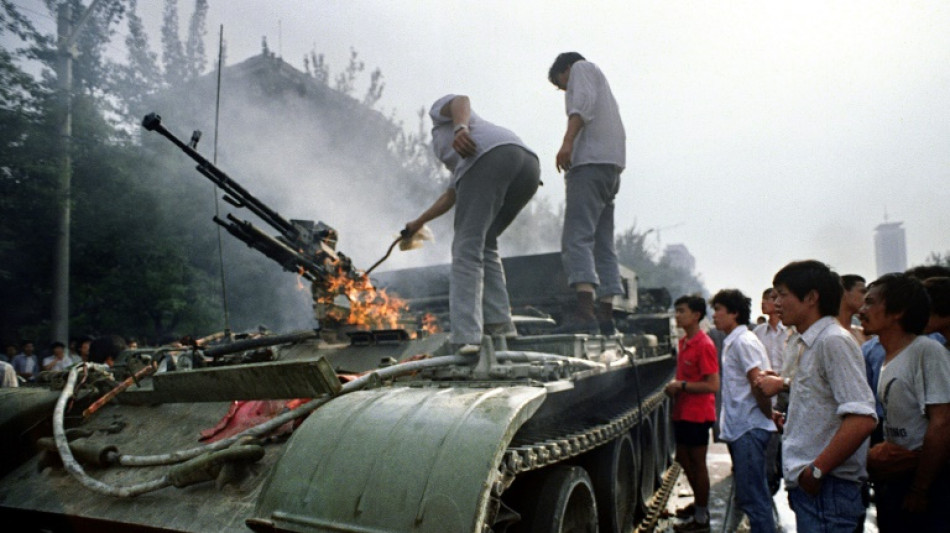
RBGPF
-0.5000

Taiwan's new President Lai Ching-te said Tuesday that the memory of Beijing's deadly crackdown at Tiananmen Square "will not disappear in the torrent of history", in a post marking the event's 35th anniversary.
Chinese troops and tanks forcibly dispersed peaceful protests in Beijing's Tiananmen Square on June 4, 1989, brutally quelling huge, weeks-long demonstrations demanding greater political freedoms.
Decades on, any mention in China of the protests is met with strict censorship.
Lai's statement on Tiananmen comes weeks after his inauguration as president, and after China launched military drills around Taiwan, which it claims as part of its territory to be seized one day.
"We will continue to work hard to keep this historical memory alive and touch everyone who cares about Chinese democracy," Lai said in a Facebook post.
"Because this reminds us that democracy and freedom are not easy to come by, we must... respond to autocracy with freedom, face the expansion of authoritarianism with courage."
Taiwan's annual vigil is scheduled to take place at 6:40 pm (1040 GMT) at Taipei's Chiang Kai-shek memorial hall.
Lai's Democratic Progressive Party has long defended the sovereignty of Taiwan's, which has its own government, military and currency.
In his Facebook post Tuesday, Lai said that "a truly respectable country is one where people speak out".
"Any regime should face up to the voice of the people, especially the young generation, because social change often depends on diverse opinions," he said.
"In the future, we will continue to unite all forces to deepen democracy in Taiwan, and work with like-minded countries to build a better world."
- Tourists at Tiananmen -
The Tiananmen crackdown killed hundreds or people, with some estimating the death toll was higher than a thousand.
Beijing described the events of that night as riots, while those outside the country depict it as a massacre of innocent people, including many students.
Many young people today within China are unaware of the 1989 events due to the wide-reaching censorship.
Asked about the anniversary on Monday, a Chinese foreign ministry spokesperson said the government "has long since reached a clear conclusion with regards to the political turmoil that occurred in the late 1980s".
At the square in Beijing early Tuesday morning, tourist groups donning matching neon hats posed for pictures beside the mausoleum of China's founding leader Mao Zedong.
Security presence was heavy, not unusual at the square, with police posted at every corner, some directing traffic while others observed passers-by through binoculars.
burs-dhc/rsc
A.El-Nayady--DT